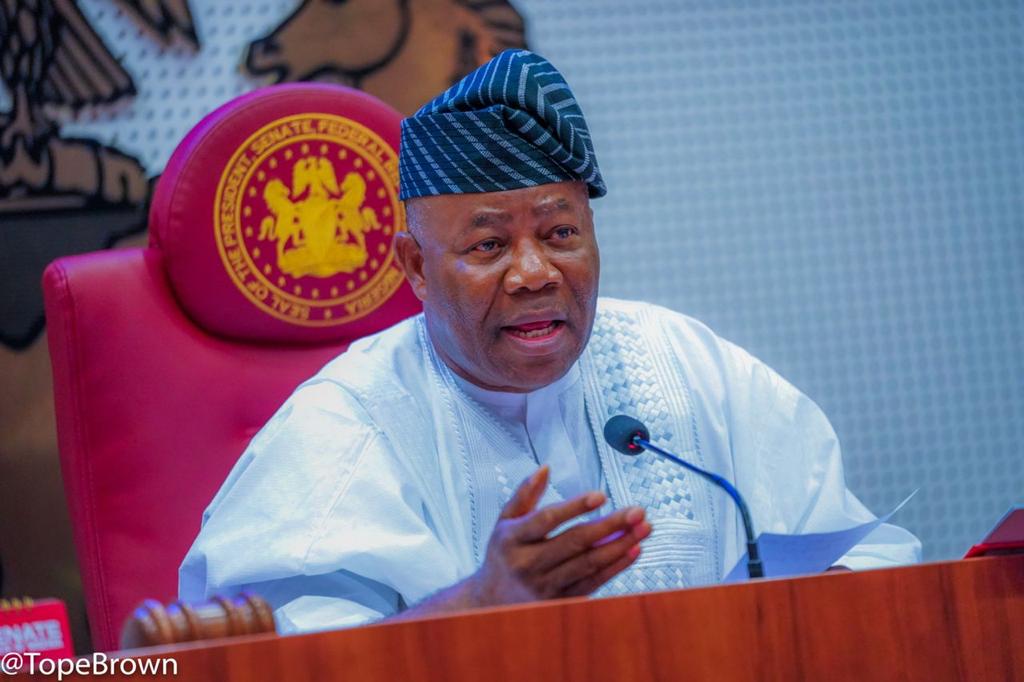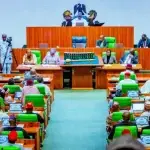
The Nigerian Senate has approved President Bola Tinubu’s ₦1.77 trillion ($2.2 billion) loan request to partially fund the country’s ₦9.7 trillion budget deficit for the 2024 fiscal year.
The approval came after a voice vote during a session presided over by Deputy Senate President Barau Jibrin, following the presentation of the Senate Committee on Local and Foreign Debts’ report by Senator Wammako Magatarkada (APC, Sokoto North).
The loan forms part of a fresh external borrowing plan to bridge Nigeria’s widening fiscal gap, but it raises concerns over the growing burden of debt servicing on the government.
In August, a report from investment management company Afrinvest predicted that Nigeria’s public debt would rise to ₦130 trillion by December 2024.
This means an increase from ₦121.67 trillion in the first quarter of this year. The “Bank Recapitalisation, Catalyst for a $1tn Economy” report shows growing concerns about the country’s debt-to-GDP ratio.
Also, recent reports from the Central Bank of Nigeria (CBN) reveal that the federal government spent $3.58 billion servicing foreign debts in the first nine months of 2024, a 39.77% increase from the $2.56 billion recorded during the same period in 2023.
The CBN’s statistics highlight a sharp rise in debt servicing costs. In January 2024 alone, a 398.89% surge in payments was recorded, amounting to $560.52 million compared to $112.35 million in January 2023.
Although February saw a slight dip of 1.84%, with payments dropping to $283.22 million from $288.54 million in the previous year, April recorded a significant 131.77% spike, rising to $215.20 million from $92.85 million in 2023.
May 2024 marked the highest monthly payment, with $854.37 million spent on foreign debt servicing—a staggering 286.52% increase from $221.05 million in May 2023.
Read Also: Nigeria Becomes Third-Largest Debtor to World Bank’s IDA, Overtakes India
Rema and Seun Kuti to Shine at Coachella 2025
Conversely, some months recorded declines: June saw a 6.51% drop, and July recorded a 15.48% decrease compared to their respective periods in 2023. However, September 2024 saw an uptick, with payments climbing 17.49% to $515.81 million, up from $439.06 million in September 2023.
These rising debt servicing costs have fueled concerns about Nigeria’s fiscal sustainability despite the increase in inflation and the cost of living.
About The Author
Related Articles
Ivory Coast to Buy Unsold Cocoa to Support Farmers
Ivory Coast has announced a government plan to purchase unsold cocoa stock...
ByWest Africa WeeklyJanuary 23, 2026Ghana Moves to Reclaim Kwame Nkrumah’s Former Residence in Guinea
Ghana has embarked on a diplomatic and cultural initiative to reclaim the...
ByWest Africa WeeklyJanuary 23, 2026Senegal Honors Players and Coach After AFCON Triumph
Senegal has formally honored its Africa Cup of Nations winning team, awarding...
ByWest Africa WeeklyJanuary 23, 2026Burkina Faso, Mali, and Niger Turn to Russia for Shared Telecom Network
Burkina Faso, Mali, and Niger have announced plans to develop the Sahel’s...
ByWest Africa WeeklyJanuary 23, 2026













Leave a comment